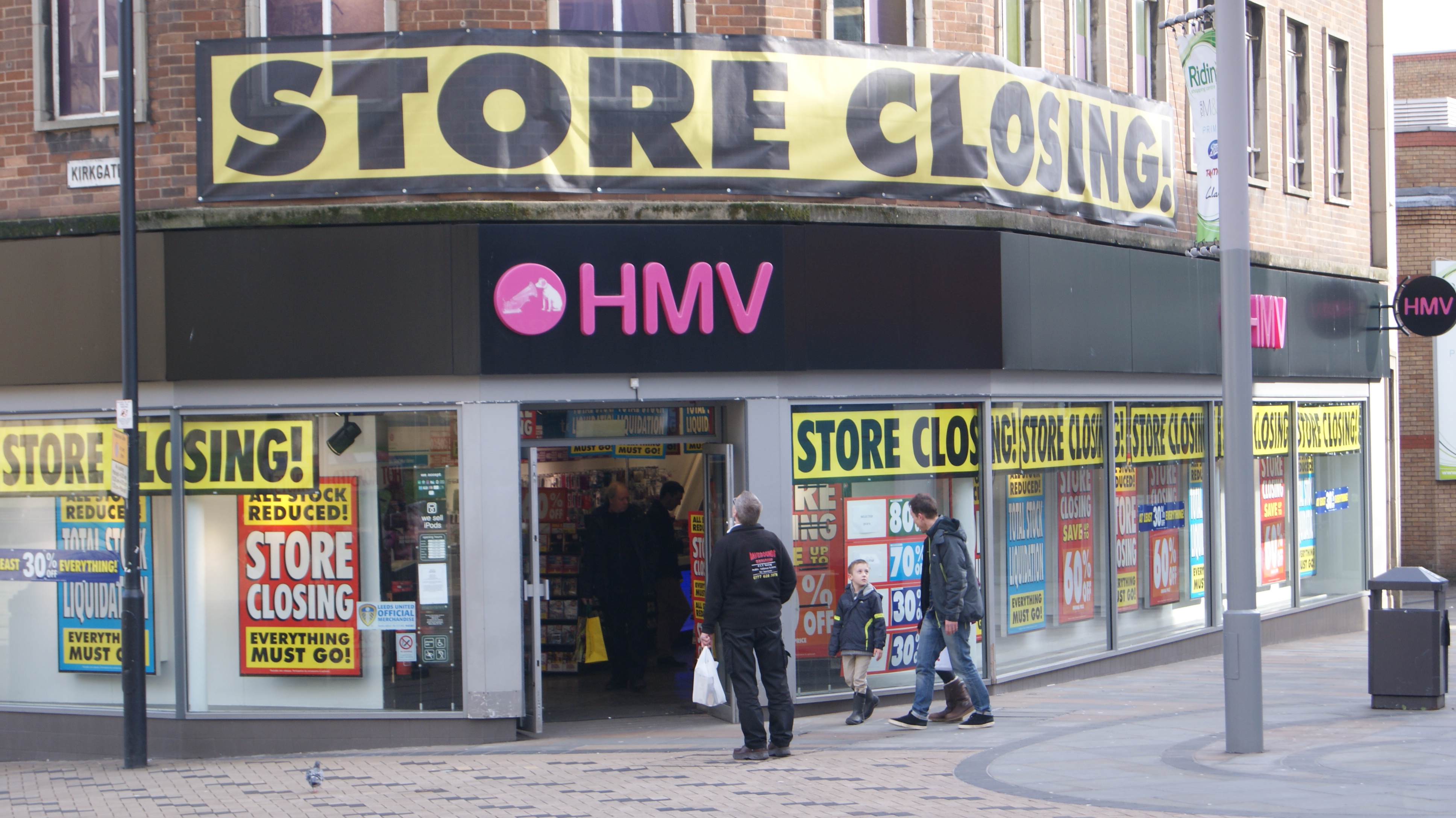
High street shops need to adopt new strategies to stay alive, argues Comment’s Hannah Lay
Shortly after Christmas, HMV announced it had fallen into administration. The annual sales figures were lower than they needed to be and a disappointing Christmas had done little to save them. This is the second time in six years HMV has had to call in administrators. We have already seen the closure of high street staples such as Toys “R” Us, Poundworld and Maplin. House of Fraser has also been in administration. Analysts have called this the ‘death of the high street.’ Towns filled with empty shops are becoming the norm. We seem to be losing the heart of our towns at a rapid rate. So why are we witnessing the death of our high streets and what can be done to stop this?
Let us focus on HMV first. In 2013, HMV first fell into administration, blaming competition from online retailers such as Amazon for low sales figures. Amazon offers most, if not all of what HMV sells, and often for lower prices. Combined with Amazon Prime, a free next-day delivery service for members, it is not difficult to see why customers prefer the online giant. Amazon offers both lower costs and convenience, two important things for shoppers. The BBC reported that ‘one in every five pounds we spend is now via the internet.’ As well as Amazon, HMV faces competition from streaming sites such as Spotify or Netflix. These sites offer a huge range of products all for a monthly fee (that is often less than the price HMV would charge for one CD/DVD), all from the comfort of your own home.
The retailer accounts for nearly 1/3 of physical music sales in the UK
With HMV falling back into administration again this year, evidently, these problems have persisted. The Guardian reported that ‘spending on physical music, video and computer games has fallen from £5.7bn to £2bn in 10 years.’ With figures like this, it seems like HMV has no hope in regaining its status as the staple shop for entertainment media. It is important to not undermine HMV’s success though. Despite the declining market, HMV remains a market leader in entertainment. The retailer accounts for nearly 1/3 of physical music sales in the UK and nearly a quarter of DVD sales. HMV maintains power in an albeit dying market. Perhaps the greatest problem for HMV is that customers no longer want physical copies of their favourite film or album, they’re content with streaming it online. If this is the case, although pessimistic to say, it seems unlikely that HMV will ever fully recover.
As already mentioned, other stores have fallen victim to the ‘death of the high street.’ However, there is no pattern of the type of stores that are suffering. The casualties range from electrical retailer Maplin to budget retailer Poundworld. Evidently, it is not just online services driving stores out of our towns. According to The Week the current business rates system is crippling high streets. Business rates are a tax on property used for business purposes and experts say they are too high. If sales in high street stores are already suffering, a crippling business tax is another hurdle that stores cannot afford to jump over. In October 2018, the Chancellor announced a financial package to rejuvenate high streets and provide business rates relief to some retailers. However, only retailers classed as ‘small businesses’ would benefit which means struggling high street chains will continue to be crippled by the tax.
Evidently, it is not just online services driving stores out of our towns
Fortunately, for now HMV has been saved. Doug Putman, the owner of the Canadian entertainment retailer Sunrise Records, has stepped in to buy some of the existing stores. But seeing as this is the second time in six years HMV has been in administration, what can this businessman do that others have failed to? The current publicised plan is to close some stores that have been identified as underperforming. This will allow the retailer to focus on continuing the success of the other stores. As well as this, Putman has said he will focus more on the sale of vinyl records. With the current vinyl revolution and widespread popularity of vinyl records this seems like a smart move. The purchase of at least some HMV stores means fans like myself can breathe a sigh of relief for now.
Although, ever the pessimist, I am not sure closing a few stores and selling more vinyl will be enough. To cope with rising business rates, the retailer has to increase sales across the board not just in one area. Also, to compete with the convenience of online retailers, HMV must create an experience for its customers, something that will make shoppers want to actually leave their house to go to their local store. An example could be hosting live events in stores, something which already happens in some areas. Or potentially, having listening booths – something my dad reminisces about fondly – so that customers can sample new albums before committing to buying them. Strategies like this are not going to attract everyone; some people are too big a fan of the online revolution. However, if shopping on the high street can become an experience again, I am sure many would flock back. It would be a shame to see our high streets die before our eyes.
Comments